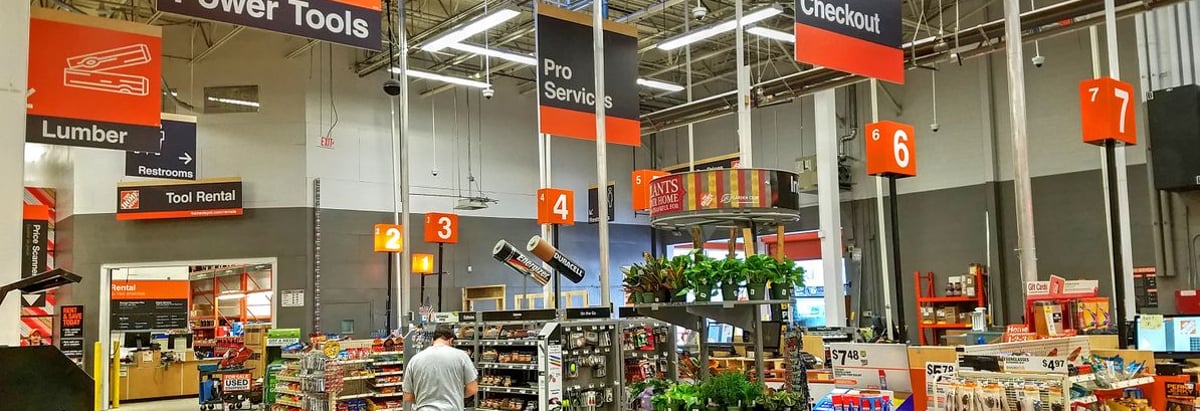- United Kingdom
- /
- Specialty Stores
- /
- LSE:TPT
Should You Be Tempted To Sell Topps Tiles Plc (LON:TPT) Because Of Its P/E Ratio?

Today, we'll introduce the concept of the P/E ratio for those who are learning about investing. To keep it practical, we'll show how Topps Tiles Plc's (LON:TPT) P/E ratio could help you assess the value on offer. Topps Tiles has a price to earnings ratio of 17.43, based on the last twelve months. That means that at current prices, buyers pay £17.43 for every £1 in trailing yearly profits.
View our latest analysis for Topps Tiles
How Do I Calculate A Price To Earnings Ratio?
The formula for price to earnings is:
Price to Earnings Ratio = Share Price ÷ Earnings per Share (EPS)
Or for Topps Tiles:
P/E of 17.43 = £0.76 ÷ £0.04 (Based on the year to March 2019.)
Is A High P/E Ratio Good?
A higher P/E ratio means that investors are paying a higher price for each £1 of company earnings. All else being equal, it's better to pay a low price -- but as Warren Buffett said, 'It's far better to buy a wonderful company at a fair price than a fair company at a wonderful price.
Does Topps Tiles Have A Relatively High Or Low P/E For Its Industry?
The P/E ratio indicates whether the market has higher or lower expectations of a company. The image below shows that Topps Tiles has a higher P/E than the average (14.8) P/E for companies in the specialty retail industry.

That means that the market expects Topps Tiles will outperform other companies in its industry.
How Growth Rates Impact P/E Ratios
Companies that shrink earnings per share quickly will rapidly decrease the 'E' in the equation. That means even if the current P/E is low, it will increase over time if the share price stays flat. So while a stock may look cheap based on past earnings, it could be expensive based on future earnings.
Topps Tiles's earnings per share fell by 25% in the last twelve months. And EPS is down 6.5% a year, over the last 5 years. This could justify a pessimistic P/E. So if Topps Tiles grows EPS going forward, that should be a positive for the share price. Checking factors such as director buying and selling. could help you form your own view on if that will happen.
Remember: P/E Ratios Don't Consider The Balance Sheet
One drawback of using a P/E ratio is that it considers market capitalization, but not the balance sheet. Thus, the metric does not reflect cash or debt held by the company. Theoretically, a business can improve its earnings (and produce a lower P/E in the future) by investing in growth. That means taking on debt (or spending its cash).
Spending on growth might be good or bad a few years later, but the point is that the P/E ratio does not account for the option (or lack thereof).
How Does Topps Tiles's Debt Impact Its P/E Ratio?
Topps Tiles's net debt is 12% of its market cap. That's enough debt to impact the P/E ratio a little; so keep it in mind if you're comparing it to companies without debt.
The Verdict On Topps Tiles's P/E Ratio
Topps Tiles trades on a P/E ratio of 17.4, which is fairly close to the GB market average of 16.7. With modest debt, and a lack of recent growth, it would seem the market is expecting improvement in earnings.
Investors have an opportunity when market expectations about a stock are wrong. If the reality for a company is better than it expects, you can make money by buying and holding for the long term. So this free visualization of the analyst consensus on future earnings could help you make the right decision about whether to buy, sell, or hold.
Of course, you might find a fantastic investment by looking at a few good candidates. So take a peek at this free list of companies with modest (or no) debt, trading on a P/E below 20.
We aim to bring you long-term focused research analysis driven by fundamental data. Note that our analysis may not factor in the latest price-sensitive company announcements or qualitative material.
If you spot an error that warrants correction, please contact the editor at editorial-team@simplywallst.com. This article by Simply Wall St is general in nature. It does not constitute a recommendation to buy or sell any stock, and does not take account of your objectives, or your financial situation. Simply Wall St has no position in the stocks mentioned. Thank you for reading.
About LSE:TPT
Topps Tiles
Engages in the retail and wholesale distribution of ceramic and porcelain tiles, natural stone, and related products for residential and commercial markets in the United Kingdom.
Undervalued with reasonable growth potential.
Similar Companies
Market Insights
Community Narratives



